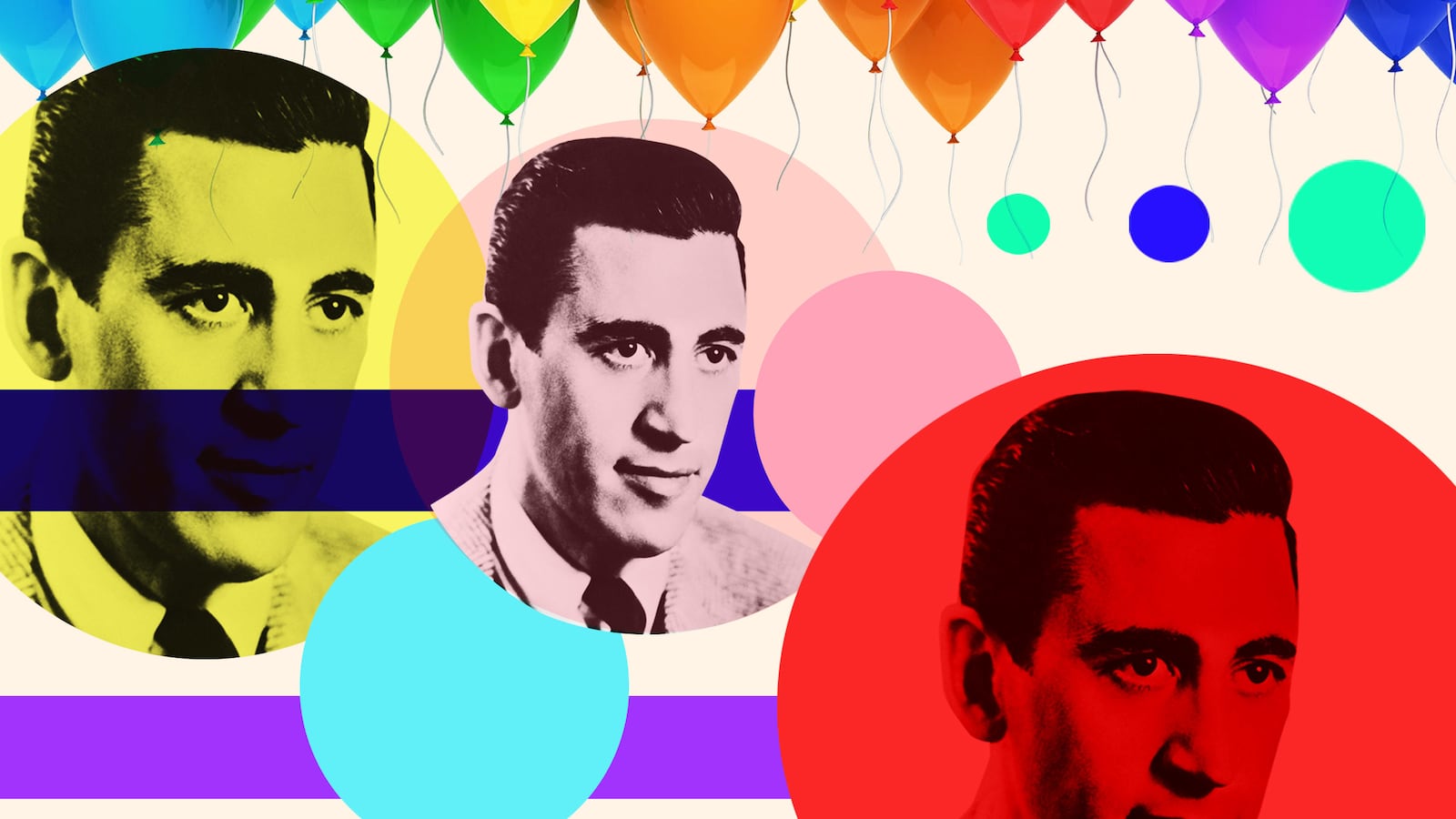New Year’s Day 2019 would have been the 100th birthday of J. D. Salinger. It’s a milestone worth celebrating because Salinger’s literary voice remains so young.
Salinger is no longer as popular as he once was, but with the passage of time, his impact has become clearer. From Sylvia Plath’s The Bell Jar to Frank Conroy’s Stop Time to Tobias Wolff’s This Boy’s Life, Salinger’s influence dominates modern American memoir.
The opening of Salinger’s 1951 masterpiece, The Catcher in the Rye, set the tone for his writing. “If you really want to hear about it, the first thing you’ll probably want to know is where I was born, and what my lousy childhood was like… and all that David Copperfield kind of crap,” Salinger’s narrator, Holden Caulfield tells us before adding, “but I don’t feel like going into it, if you want to know the truth.”
That sentence, if we don’t read it carefully, lures us into thinking Holden is asking us to go easy on him for the lack of detail in his story. But the reverse is true. Holden is arguing for the kind of memoir in which an author’s point of view is far more important than the events he remembers.
A century earlier, Charles Dickens had David Copperfield begin his story by looking back and declaring, “Whether I shall turn out to be the hero of my own life or whether that station will be held by anybody else, these pages must show.” Holden will not engage in such retrospective speculation. He will instead take responsibility for himself and his story.
Holden knows that what makes him different is his reluctance to follow the expected path. Holden cannot stay in any single school for long, and he will not learn the lessons put before him. He is too busy waging war with a world he regards as phony.
What is consistent about Holden is his sense of the beauty of everyday life. He does not rhapsodize over this beauty, but he unfailingly notices it, whether in his brother writing poetry in his baseball mitt or his sister riding the Central Park carousel in mid-winter.
Salinger’s literary double, Buddy Glass, would characterize his own writing as “a prose home movie,” and no description better explains how Salinger deliberately stripped his prose of contrivance in order to make it dependent on the spoken word.
Salinger was not a writer who from the start wrote with brevity or grace. He knew his early work was flawed, and he made sure it was never collected. Before The Catcher in the Rye turned Salinger into a celebrity and before such short stories as “A Perfect Day for Bananafish” and “For Esme—with Love and Squalor” earned him praise, Salinger struggled to come to terms with the world of the 1940s that he had experienced as a soldier.
Salinger landed on Utah Beach on D-Day, then served in the Counter Intelligence Corps with the Fourth Infantry Division throughout World War II. He remained in Germany after its surrender to help deal with denazification.
The Nazi death camps made a lasting impression on Salinger. His daughter, Margaret, remembers him telling her, “You never really get the smell of burning flesh out of your nose entirely, no matter how long you live.”
Salinger believed other veterans carried similar memories, and in the authors’ notes section of the October 1945 issue of Esquire in which he had a short story, Salinger observed of the kind of postwar writing he admired, “The men who have been in this war deserve some sort of trembling melody rendered without embarrassment or regret.” Salinger worried that he often failed to provide that trembling melody, but he never stopped trying to achieve it.
Because he stopped writing while still in his forties, Salinger did not experience the kind of falling off older writers, like aging athletes, sometimes do. He was lucky in that respect. The judgment that still holds for Salinger is the one made early in his career by Ernest Hemingway, with whom Salinger became friends during World War II when Hemingway was a war correspondent for Collier’s. “You write tenderly and lovingly without getting wet,” Hemingway observed in a handwritten letter in which he went on to assure Salinger he was not an “easy praiser.”







